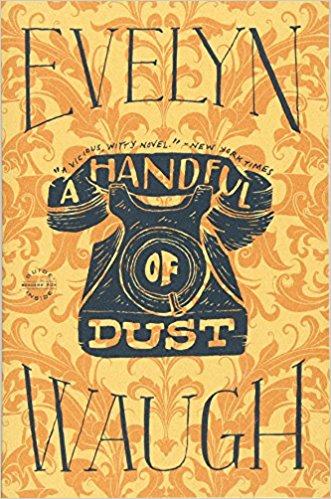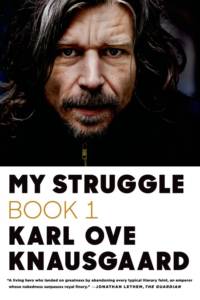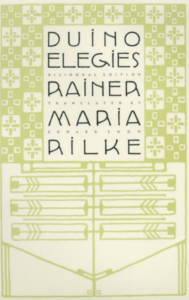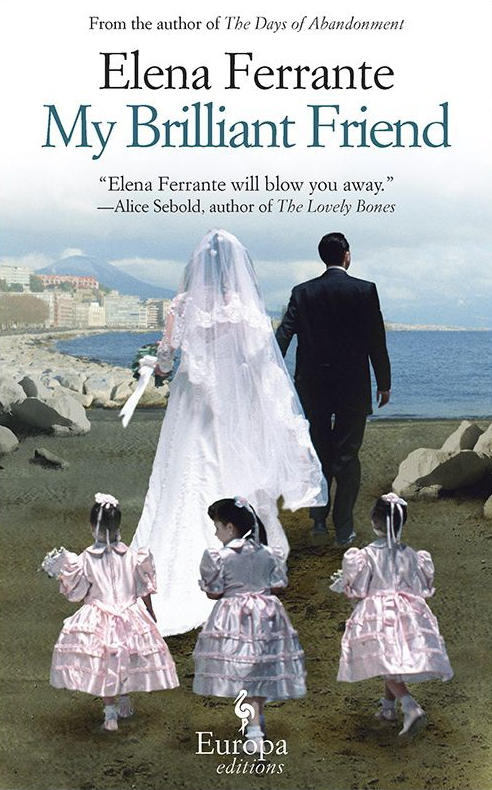This July, join our summer staff in going deep with your beach reading. We’re taking on ambitious projects: books that span lifetimes, begin series, and jump between planes of existence. Here are novels for your existential angst, elegies for your crises of purpose, works to help you through your election-related anxiety—what better time than summer to disappear into a world that could take over your mental world for perhaps thousands of pages, letting you take on life’s most daunting questions?
Recommended:
A Handful of Dust by Evelyn Waugh, My Struggle: Book I by Karl Ove Knausgaard, The Duino Elegies by Rainer Maria Rilke, My Brilliant Friend by Elena Ferrante
 A Handful of Dust by Evelyn Waugh
A Handful of Dust by Evelyn Waugh
Recommended by Sarah Whelan (Senior Editorial Assistant)
A blistering example of Waugh’s darkly comedic style, A Handful of Dust mocks the crumbling domestic life of Tony and Brenda Last. The quintessential aristocrat, Tony spends the novel puttering around Hetton, the estate that has become a money drain for him and a bore to his wife. As his habits and name would suggest, Tony Last represents an end to an era; consequentially, it is unwise to discuss the novel in terms of a beginning, middle, and end. Instead, the text is best read as a painful, protracted goodbye to traditional British culture in the wake of the First World War. As divorce proceedings force Tony to leave his beloved Hetton, so does Britain trade its “English Gothic” past for an illogical present. As a 2016 reader of A Handful of Dust, I cannot help but feel that the shock of Brexit has made a Tony Last of us all.
My Struggle: Book I by Karl Ove Knausgaard
by Karl Ove Knausgaard
Recommended by Flavia Martinez (Editorial Assistant)
It’s hard to talk about current fiction without mentioning Karl Ove Knausgaard. Written in Norwegian, Knausgaard’s six-book series, My Struggle, is now available in twenty-two languages. At the heart of My Struggle’s success is an unmistakable sense of place. Ever-present snow and slush situate the reader at the heart of a Nordic winter, giving off, despite heavy boots and underclothes, a feeling of bitter cold. Also essential to the book’s sense of place are proper nouns: names of people and places. This, and the occasional awkward translation, give the reader a sense of being somewhere else. Other detailed descriptions–of objects in the sitting room, food on the dinner table, and intimate thoughts–make My Struggle: Book 1 a private, Proustian read.
The Duino Elegies by Rainer Maria Rilke
by Rainer Maria Rilke
Recommended by Jackson Trice (Editorial Assistant)
If your clinical depression is anything like mine, a leaf, a shadow, or the sight of two lovers in July might just be enough to completely ruin you. Rilke gets it. He’s sort of the ultimate lonely boy. He revels in solitude so you don’t have to, and what does he find? Among the pages of The Duino Elegies lie Greek gods, stars, music, wild animals, infants, acrobats, creepy cornhusk puppets, more stars, and angels. “Every angel,” he begins the Second Elegy, “Is terrifying.” Rilke’s thin skin to the natural world allows him to feel exuberance and at the very sight of a flower, and in each elegy, he moves you to feel it, too. Yes, Rilke seems to say, the world is a heartbreaking place, but look how beautiful it is. His enthusiasm and whimsicality in spite of his grave losses are enough to fill even a cynic’s heart with hope.
 My Brilliant Friend by Elena Ferrante
My Brilliant Friend by Elena Ferrante
Recommended by Olivia Wolfgang-Smith (Friday Reads Curator)
It turns out that Ferrante’s Neapolitan Quartet of novels is so thoroughly lauded for good reason. It took me months of recommendations from friends before I picked up this first in the series, largely because the scope of Ferrante’s world is so large, the lives of her characters so long and rich and complexly intertwined, that in a cultural moment defined by spectacle it’s hard for a summary-recommendation like “it’s about female friendship and Neapolitan society” to stand out from the crowd. If you’re as slow as I was to pick up Ferrante, add this to your list of testimonials and rest assured that you haven’t heard much about the plot not because nothing happens, but because too much happens to reduce to click-bait bullet points.



